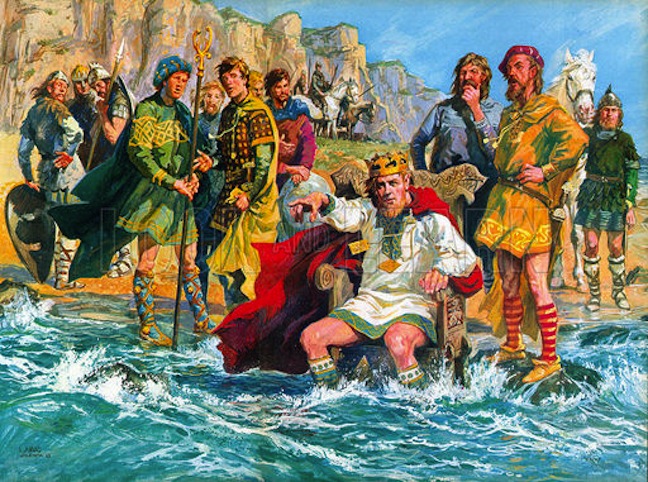Stopping the tide — The difference between the Anglo-Saxon and Latin political traditions comes to us – obviously – from the past, from the cultural baggage the two meta-societies carry with them.
The point has been elegantly underlined in a recent editorial by an Italian journalist, Guido Mattioni, which contrasts the opening words of the American Constitution of 1787, “We, the People…”, with those of the preamble of the European Constitution of 2004, signed but never ratified, which begins instead with a long list of heads of state: “His Majesty the King of the Belgians, The President of the Czech Republic, Her Majesty the Queen of Denmark, The President of the Federal Republic of Germany, His Royal Highness the Grand Duke of Luxembourg…”
It’s possible that the cultural division between “Caesarism” and diffuse popular sovereignty springs from an ancient tale, very widely known in English-speaking countries and hardly at all in Latin ones. It’s about an episode (whether apocryphal or real doesn’t matter) from the life of King Canute, the ruler of a now forgotten 11th Century viking empire that included England, Denmark, Norway and part of Sweden.
Canute – and the story has been repeated for a millennium to fifty generations of impressionable students – is supposed to have had his throne carried to a beach near his castle where, comfortably seated at the water’s edge, he then commanded the tide to cease rising – with the predictable result of getting his feet very wet.
In popular usage, this is a parable about the arrogance of power, and it still commonly appears in Anglo-Saxon writings and journalism to describe powerful persons who refuse to recognize the limits of their own will. King Canute’s apologists – because he still merits apologists after a thousand years – explain that the Monarch wished instead to underline the limits of temporal power to the many flatterers and “yes men” of his Court.
Since the leader who truly wants to prove that he is less important than he may appear is a very rare animal indeed – to be categorized along with unicorns and gryphons – it may well be that “the people” once again are on the right side of that question. However that may be, Canute, who is also known to history for his unfortunate habit of mutilating his enemies before killing them, did possess other means to “clarify the understanding” of his followers whenever that became necessary.
Fresh cash for Athens — Suppose the Greeks simply started printing all those euro they’re missing… Most likely they’d run out of paper sooner or later, but otherwise there’s no overwhelming technical problem. In concrete fact, it is the Bank of Greece, through its mint, IETA, that prints the cash money the country requires. What if someone happened to forget to turn off the presses one evening? With the intensely “creative” approach that characterizes the present Greek Government, why not? And, in the event, exactly what could the European Union do about it? It ought to be remembered that, differently from coins, euro banknotes have precisely the same appearance all across Europe, independently of wherever they are issued. It may be that INTCENT, the EU’s tiny “wannabe” CIA clone, is already in movement. About time those people earned their keep; oddly enough, their good works never seem to appear in the Union’s tedious “feel good” television spots.












